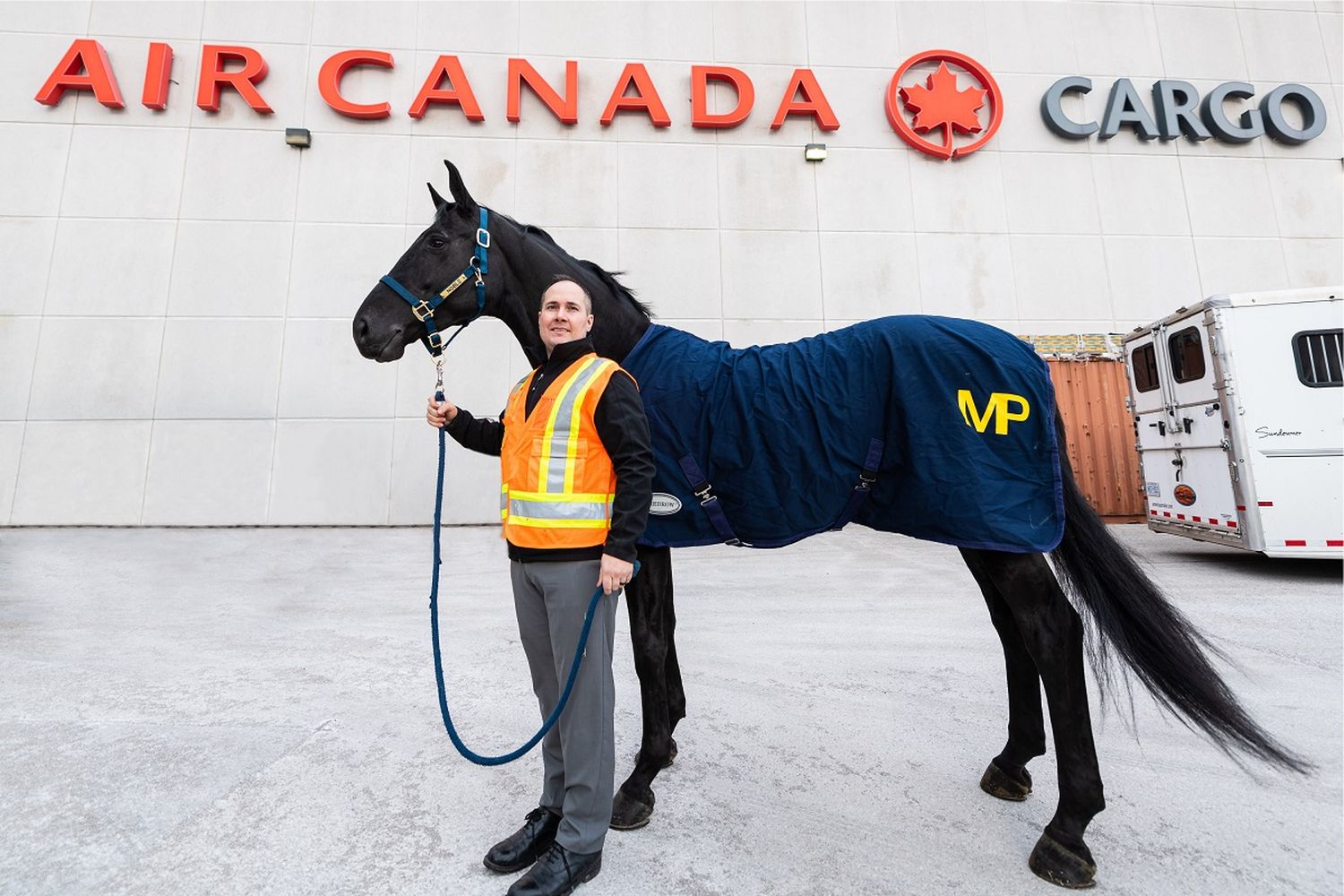Air Canada Cargo recently completed its first equine transport. It was a horse named Noble, sent as a gift from the Royal Canadian Mounted Police ahead of the coronation ceremony of Charles III of the United Kingdom, which will take place on 6 May.
See also: Air Canada Cargo expands its European network
Air Canada Cargo completed its first equine transport
The operation took place on one of the company’s Boeing 767-300F aircraft. Noble travelled in a specially designed cargo stall manufactured by VVR. He was accompanied by an equine attendant throughout the flight.
«We are extremely proud to have been able to send Noble to her new home and life with the Royal Family», said Matthieu Casey, Managing Director, Commercial, for the Canadian airline’s cargo division. » Air Canada Cargo takes great pride in the safe and humane transport of animals, and our new equine service provides the highest standard of safety and care for these magnificent animals», he said.

Certification for the safe transport of live animals
After completing a verification process, in 2022 Air Canada became the first airline to obtain IATA recertification for the safe transport of live animals.
As part of the process, specialists from the organisation conducted an audit of the airline’s policies and procedures for this type of operation. Among other measures, they reviewed compliance with regulations on the transport of live animals and compliance with international protocols governing the activity.
The company had been the first to receive CEIV Live Animals certification in 2018, a standardised global certification programme to optimise the safety and welfare of animals transported by air.
See also: Emirates and Air Canada sign agreement to boost their cargo networks
Transporting equines by air
As with any animal, air transport can cause anxiety and fear in equines. During the operation, which in the case of intercontinental flights can take many hours between pre-processing, boarding, confinement and disembarkation, the animals are exposed to movement, noise and changes in pressure, temperature and humidity.
For this reason, the industry establishes standard procedures to minimise stress and emotional impact during transport.
In these cases, the companies provide a specialised assistant in charge of the care during the whole flight and try to minimise the time the animals spend inside the aircraft. It is a necessary condition that the animals are in good health and that they are in the presence of a professional caretaker who, ideally, knows them beforehand.


Comentarios
Para comentar, debés estar registrado
Por favor, iniciá sesión